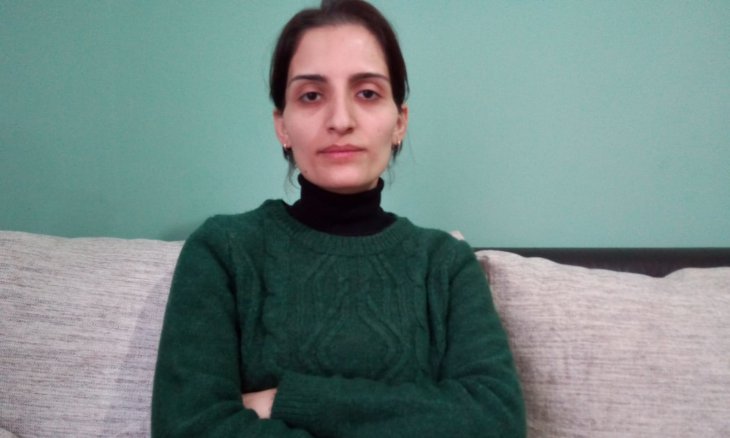Members of music collective Grup Yorum on hunger strike in jail for months
Several jailed members of the music collective Grup Yorum have been on hunger strikes while behind bars on terror charges. Bahar Kurt, Barış Yüksel, Ibrahim Gökçek, Helin Bölek and Ali Aracı have all been on strike now for between 120 and 196 days. Bölek, who was released on Nov. 20, has experienced muscle and joint pain and nervous system problems.
Hacı Bişkin/ DUVAR
Several jailed members of the music collective Grup Yorum have been on hunger strikes while behind bars on terror charges. Bahar Kurt, Barış Yüksel, Ibrahim Gökçek, Helin Bölek and Ali Aracı have all been on strike now for between 120 and 196 days. Bölek, who was released on Nov. 20, has experienced muscle and joint pain and nervous system problems. Bölek explained on her 186th day of striking that until their demands are met, they will continue the strike.
“Everything there can be used as a means to wear you down. Punishments, investigations, clothing and furniture, books and magazines, conversations, letters, health problems, legal issues, petitions that you have written concerning your ongoing court cases, anything that comes to mind,” Bölek said of her time in prison.
“Since the insects and mice that would creep into our cells caused discomfort, we noticed that they did not use a disinfectant or do anything to prevent them. This is all used as a method of punishment to make you regret what you were doing outside or the reason for being in prison,” Bölek added.

Grup Yorum is a leftist folk music collective that has been around for more than three decades, releasing a number of albums and performing large concerts throughout Turkey and elsewhere in Europe. Despite their popularity, they have faced persecution throughout the years, and currently several of their members are in prison. Grup Yorum has been accused of being affiliated with the Revolutionary People's Liberation Party/Front (DHKP/C), a banned leftist militant group that Turkey considers a terrorist organizsation.
“We really went through a lot. From physical attacks to psychological attacks, countless arbitrary treatments, we were brought from one place to the next, put in solitary confinement, victimized on many levels but we always held our heads up high,” Bölek said.
Regarding the motivation to launch and an endure a hunger strike, Bölek explained that she had pursued every other legal channel of overturning the bans that were imposed on Grup Yorum concerts.
“After you start a hunger strike, the thing said most frequently is 'isn't there another way? why are you embarking upon a hunger strike, you are ruining yourselves, we don't want you dead, we need you alive and healthy'. And every time I explain this five-year process that we have gone through together with our demands. To get past the bans on our concerts, we tried numerous methods. Is there another group in history that has dealt with this?” Bölek said, adding that they staged protests against the bans, moved banned stadium concerts to public squares, sometimes singing their songs while being tear-gassed by police.
Bölek said that the primary demand of her and her fellow members is the end of the bans imposed against Grup Yorum, and that their demands are not independent from this, adding that their aim was to set free the songs of the people. She said that it is not only the ruling Justice and Development Party (AKP) that has placed bans on the group, but it has been banned elsewhere in the world as well, which Bölek says is due to the group's presence being a threat to imperialism.
After six months of sustaining a hunger strike, Bölek said that she feels the strength derived from resistance, and that she feels good in spite of the physical problems and pain that she has experienced as a result of maintaining the strike for so long.
“To make them nervous, to make them not go anywhere and not to stake their claim and so that they don't do anything, they threaten and harass people. However, these are not methods that can get results. We are one step ahead of them,” Bölek said.
